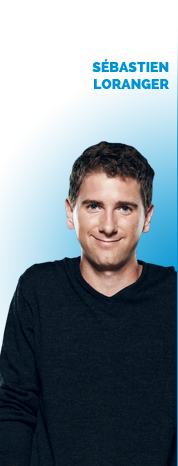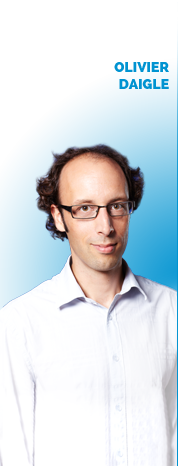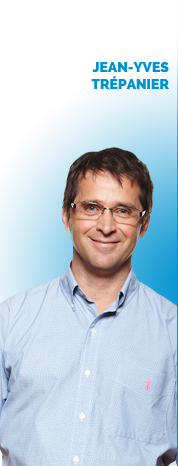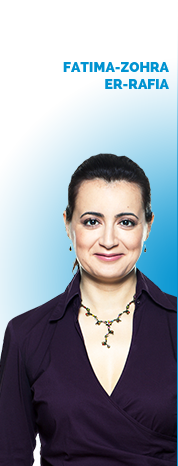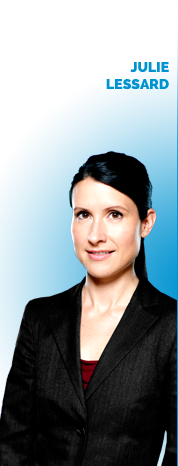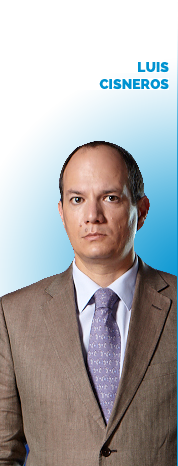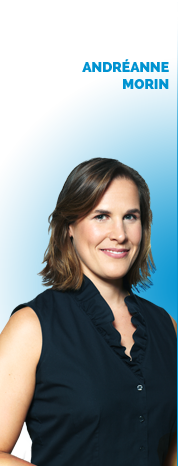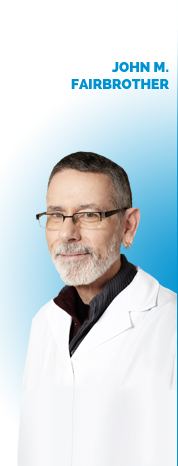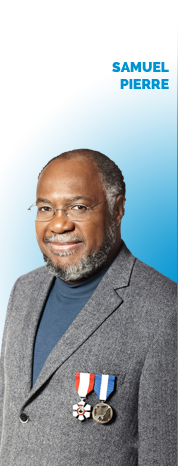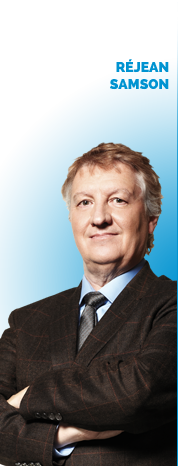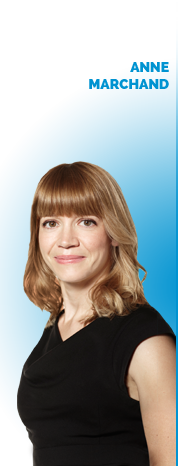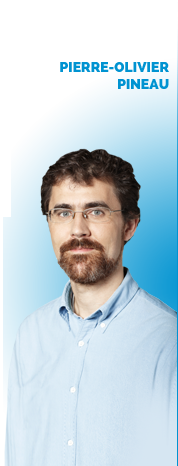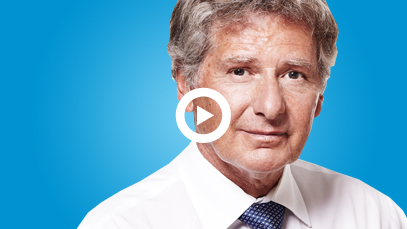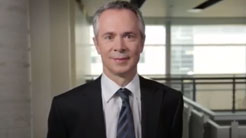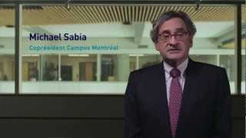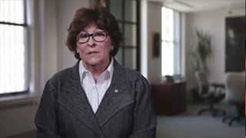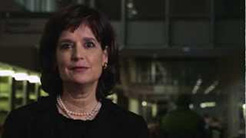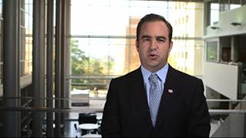The Earth’s population will reach 9 billion by 2050.
What will we all eat?
Talents with a Global Reach.
The global economy is both fragile and volatile. How can we build a healthy and stable financial system that works for both communities and individuals?
Every year, 15 million babies around the world are born prematurely. How can we improve their health and that of their mothers?
The prosperity gap between countries is too wide, and getting wider. How can we achieve greater equality?
Our democratic models are fostering the rise of theocratic political cultures. How can we deal with these kinds of governance?
Economic growth frequently results in disastrous social and environmental consequences. How can we redefine it?
We are now able to alleviate the pain of those suffering from degenerative diseases. How can we cure them and eradicate these diseases?
All over the world we are accumulating enormous quantities of data. How can we use this information in a meaningful way?
Globalization is having a major impact on peoples’ cultures. How can we protect nations’ “identities”?
When will we come up with an international strategy on responsible investment and sustainable development?
Prosecutions under the emerging international criminal justice system are challenging age-old assumptions of impunity. How can we step up such efforts?
Few universities around the world bring together enough disciplines to answer all these questions. Campus Montréal has everything it takes – engineering, commerce, law, medicine, arts, and natural, human and social sciences – to address the most complex challenges of today’s societies, and tomorrow’s as well.
COOLER VISION.
Is it possible to cool an object, rather than heating it, with light? Could we look forward one day to coolers and fans as tiny as a beam of light?
SÉBASTIEN LORANGER studies at Polytechnique Montréal. Winner of the 2012 André Hamer Postgraduate Prize from the Natural Sciences and Engineering Research Council of Canada, Sébastien is conducting research into the use of lasers and new materials for cooling. The technology could make bulky coolers and electric fans things of the past, and produce a new generation of even tinier electronic devices and lasers.
WHAT IS ESSENTIAL IS (NO LONGER) INVISIBLE.
How can we extend the frontiers of biomedical imaging? Is it possible to detect the mineral content of ore in a pitch-black mine, deep below the surface? How can we see even farther out into the universe around us?
OLIVIER DAIGLE, earned a PhD in astrophysics from the Physics Department of the Université de Montréal. During his doctoral studies he designed an ultrasensitive camera that can be used to explore hitherto unknown territory. NASA was the first client to acquire a model of the prototype. In addition to astronomy, the camera has applications in biomedical imaging, chemistry, biology, nano-technology, pharmacology and many other disciplines.
WINGING OUR WAY FORWARD.
How can we push the boundaries of aircraft design? Can we reduce their fuel consumption, pollution and noise? And build them for less?
JEAN-YVES TRÉPANIER is a Professor in the Mechanical Engineering Department at Polytechnique Montréal and holds the NSERC-J.-A.-Bombardier-Pratt & Whitney Canada Industrial Research Chair in Integrated Design toward Efficient Aircraft (IDEA). His work deals with digital airflow simulation, aerodynamic design and optimization, geometric modelling and computer infrastructure to support engineering design.
CHINA, THE JAPAN OF THE 21ST CENTURY?
China has become the world’s second most powerful economy in the space of just 30 years, and its rapid economic growth echoes Japan’s performance in the 20th century. Will it be able to successfully manage its social and environmental growth at the same time? Can we expect a Chinese approach to sustainable development, an approach based on Confucian values of collective harmony rather than Western individualistic ones?
FATIMA-ZOHRA ER-RAFIA is an engineer by training. She is completing her PhD in management at HEC Montréal while teaching undergraduate and graduate management courses, also at HEC. She has won several scholarships and awards of excellence. In her research work on international and intercultural comparative management she is contrasting Japan’s development with that of China, at a time when the Middle Kingdom is astounding and intriguing the West with its robust economy and complex model.
VANQUISHING CANCER.
How do genes behave as cancer cells proliferate? Is it possible to design therapies to specifically target cancer stem cells?
JULIE LESSARD, has some remarkable accomplishments to her credit. After four years at Stanford University, in California, she joined the Institute for Research in Immunology and Cancer (IRIC) at the Université de Montréal. She is now a Professor in the Department of Pathology and Cell Biology, where she has come up with some decisive advances in the battle against cancer. In particular, she discovered a key genetic determinant of the self-renewal capacity of leukemic stem cells. Her research has earned her many awards and distinctions.
PURSUING GROWTH.
How does a company ensure its future growth when it’s time for the founders to pass the torch? What are the keys to effective succession planning in a family business? How can the new owners benefit from their predecessors’ experience? How can entrepreneurship be fostered in the younger generations? What are the best practices to ensure an entrepreneurial succession?
LUIS CISNEROS, a graduate of the Universidad Autónoma de Aguascalientes, in Mexico, of Université Paris IX – Dauphine (France) and HEC Paris (France), and now an Associate Professor at HEC Montréal, Professor Cisneros directs the McGill-HEC Montréal International Business Families Centre, an organization that studies the question of Entrepreneurial succession in family businesses and the various issues faced by business families. He is also conducting research into entrepreneurship and team succession plans here and around the world.
ROWING TOWARD THE FUTURE.
How is it possible to stay physically and mentally fit for years, without losing sight of your goal? How can you up the pace when you’ve already given everything you’ve got? How can you go back to training when you’ve watched a medal slip through your fingers by mere fractions of a second?
ANDRÉANNE MORIN studies law at the Université de Montréal. A silver medallist in the women’s eight rowing event at the 2012 Olympic Games in London, she finished fourth at the Beijing Olympic Games in 2008 and seventh at the Athens Games in 2004. She is a three-time World Championships medallist in the eight, and was also the 2006 National Collegiate Athletic Association (NCAA) rowing champion in the Varsity 8. That same year she completed a BA in political economy at Princeton University.
LEADERSHIP AND VISION.
How can one transform a fear of losing into an absolute desire for victory? Is it possible to turn one’s performance around and achieve one’s wildest dreams? How to help people and organizations adopt a new vision and reach ambitious goals?
DANIÈLE SAUVAGEAU is a graduate of the Université de Montréal and HEC Montréal, and currently the General Manager of the Carabins women’s hockey program. Over the course of her career she has attended seven Olympic Games, as women’s hockey coach, general manager and coaching consultant. Thanks to her leadership, the women’s team won seven consecutive World Championships and twice reached the Olympic podium.
Danièle Sauvageau has also contributed to the success of a number of Canadian athletes in about fifteen disciplines. Many public- and private-sector clients are now calling on her expertise in coaching and forming winning teams to advise them on performance in a host of fields. Danièle Sauvageau has worked for the Royal Canadian Mounted Police and the Montréal Police Department for over 27 years.
GLOBAL MOBILITY.
How can we pool disciplines as varied as education sciences, cognitive sciences, computer sciences, artificial intelligence, engineering and telecommunications to reap the wonders of mobile technology?
SAMUEL PIERRE is a Professor in the Computer and Software Engineering Department at Polytechnique Montréal. He spares no effort to motivate talented students by providing them with access to specialized experimental laboratories. Samuel Pierre received the Order of Canada in 2012 for his contribution to the field of wired and wireless telecommunications networks, and for his leadership within Québec’s Haitian community.
SUSTAINABLE PRODUCTION AND DEVELOPMENT.
How can we harmonize modes of production and consumption with new sustainable development values? Is it possible to manufacture eco-friendly, socially acceptable, economically viable, culturally enriching products tailored to our technological lifestyle?
PIERRE-OLIVIER PINEAU is Associate Professor of the School of Quantitative Methods for Management at HEC Montréal, and professor/researcher at the Interuniversity Research Centre for the Life Cycle of Products, Processes and Services (CIRAIG).
RÉJEAN SAMSON is a Professor in the Chemical Engineering Department at Polytechnique Montréal, and Director General of the Interuniversity Research Centre for the Life Cycle of Products, Processes and Services (CIRAIG). He focuses primarily on issues relating to the environmental footprint of industrial products and processes through research partnerships with universities and institutes in Canada and abroad.
ANNE MARCHAND is Assistant Professor with the School of Industrial Design at Université de Montréal, and associate researcher with the Interuniversity Research Centre for the Life Cycle of Products, Processes and Services (CIRAIG).
THE E. COLI THREAT.
How can we prevent E. coli infections? Is it possible to anticipate new strains of bacteria and prevent the risk of epidemic in humans and farm animals?
GHYSLAINE VANIER, research officer, Reference Laboratory for Escherichia coli.
JOHN M. FAIRBROTHER is a Professor in the Pathology and Microbiology Department (Faculty of Veterinary Medicine) at Université de Montréal. For over 35 years, he has headed the Reference Laboratory for Escherichia coli, a research unit accredited by the World Animal Health Organization. He is also co-founder of Prevtec microbia, a Université de Montréal spin-off company specializing in methods of preventing bacterial infection for livestock production.
FLAVIEN NDONGO KASSÉ, Master’s student, Bateriology, Reference Laboratory for Escherichia coli.
Health and personalized medicine
Improving health care and developing personalized medicine means patient-centred care drawing on all fields of expertise. It means understanding genetic variations that cause healthy people to get sick. It means integrating and efficiently using information on an individual’s condition, by adapting care to specific needs. And these experts do not work in isolation: this 21st-century approach brings together doctors, nurses, therapists, engineers, pharmacologists, computer programmers, managers and other experts. The Université de Montréal is already recognized as a leader in personalized medicine, and Campus Montréal will make it possible to consolidate this leadership.
Sciences and advanced technologies
More than twenty major cities around the world are using our researchers’ findings to help manage their public transit workers’ schedules. The same expertise, in the field of operational research, is also helping make many airlines and railways more profitable. Campus Montréal will encourage this kind of innovation by fostering collaboration between the best and the brightest from near and far. Our researchers are known worldwide for developing new materials and in the field of nanoscience. Campus Montréal will focus on this expertise to create applications linked to nanoscience in electronics, microsystems, photonics, biosciences, functional coverings and catalysts.
Energy and sustainable development
Climate change, energy and drinking water management, over-exploitation of natural resources, biodiversity loss, food security, industry disasters … such ecology – and development-related issues involve all players in our society. Many of our researchers are renowned in the environmental field. They must be allowed to continue their work here in Montréal, as part of multidisciplinary teams seeking solutions to tomorrow’s problems.
Internationalization and pluralism
The best universities attract the best students, and they come from around the globe. This international mobility is a fact of life in Montréal and will be increasingly apparent in all fields of knowledge. Such talented students must have access to suitable scholarships and be allowed to flourish in a high-quality campus environment. Campus Montréal will work to shape a Montréal experience, allowing thousands of future teachers, sociologists, doctors, engineers, lawyers, musicians, managers, historians and other talented individuals to share a unique learning experience and weave international networks that will serve them all their lives.
Creativity and entrepreneurship
Montréal is an international hub of innovation and creativity with a gift for attracting top talents. Campus Montréal plans to serve as a hothouse for entrepreneurs, a breeding ground for promising projects, a catalyst making creativity an essential ingredient in innovation. By creating the right conditions and strategies to nourish novel ideas and the means to assess their social, scientific, technological and commercial potential, these institutions will contribute like never before to Montréal’s vitality.
Donate online
Campus Montréal merit and recruitment scholarships
Campus Montréal wants to raise $140 million to establish a landmark scholarship fund. Committed to academic excellence and access, the Campus Montréal Scholarship Fund will above all support students pursuing graduate and post-graduate studies, improve access to post-secondary education for gifted students and enhance the international dimension of our programs.
The scholarships offered through the Campus Montréal Excellence and Access Scholarship Fund are comparable to those of many world-renowned institutions. They will include:
• Recruitment scholarships offered at all university levels
• Graduate scholarships
• International mobility scholarships
• Accessibility scholarships
• Post-doctoral fellowships and guest research scholarships
Donate online
Institute for Operational Research and Data Sciences
Operational research and data sciences form a cross-disciplinary entity that combines mathematics, economics and information systems. Closely linked to the needs of large organizations, industry sectors and the business community, ORDS plays a crucial role in optimizing strategic decision-making and addressing complex challenges such as increasing productivity and improving performance, which necessitate efficient processing of large quantities of information and the most advantageous use of resources.
Focusing on four key areas – transportation and logistics, energy, finance, productivity – the Institute for Operational Research and Data Sciences will be in a position to develop and expand partnerships with Crown corporations as well as local, national and multinational companies, and to train professionals to become leading experts in these areas.
An Institute for Operational Research and Data Sciences will make it possible to launch significant innovative projects such as, for instance, designing intelligent energy management and transportation systems and developing new financial governance tools.
FULL DESCRIPTION (PDF)
Donate online
Institute for New Materials and Nanotechnologies
The technologies emerging from the fields of nanotechnology and advanced materials play a key role in nearly every industry around the globe. They are vital to the future of several industries and spur the development of new sectors of activity. The issues currently affecting the materials sector include the discovery and development of advanced materials at different scales including the nanometre scale – challenges that require a novel approach and which must be addressed in an integrated manner. As for nanotechnologies, which support the development of existing technologies and are already vital to the future of several industries, they have the potential to develop new sectors of activity and inspire major changes in various fields.
By helping to bring together researchers and students from multiple disciplines (physics, chemistry, biology, engineering, etc.) and providing them with an outstanding training and research environment, the Institute will focus its attention on conducting innovative interdisciplinary research that will have a beneficial impact on society and on establishing extensive strategic partnerships in Quebec, Canada and beyond.
FULL DESCRIPTION (PDF)
Donate online
Carabins Excellence in Sports Program
The Carabins Excellence in Sports Program assists student athletes at HEC Montréal, Polytechnique Montréal and Université de Montréal to achieve their personal and sporting goals by providing an environment that encourages the highest level of academic and sporting performance. The Endowment Fund for this program was set up to help the Campus Montréal university complex achieve two major objectives: to rank among the top five university athletic programs in Canada, and to set the benchmark for Canadian universities in terms of academic support for top varsity athletes.
FULL DESCRIPTION (PDF)
Donate online
Carrefour Ideos
HEC Montréal wishes to create a centre to launch various initiatives aimed at establishing businesses and organizations with a social, community or cultural vocation. Carrefour IDEOS will develop applied research projects, provide training and coaching, and ensure the transfer of skills so as to appreciably improve the management and governance of such businesses and organizations. As a result, Carrefour IDEOS will be in a position to supply Quebec with a significant number of competent and perceptive managers and administrators, capable of considerably improving the management of social economy organizations.
